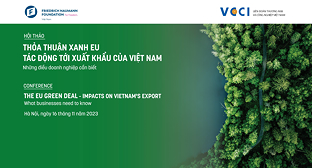U.S. Subsidies Enforcement Annual Report
28/08/2014 12:00
The Office of the United States Trade Representative and The United States Department of Commerce
Summary
Section 281 (f)(4) of the Uruguay Round Agreements Act directs the Office of the United States Trade Representative (USTR) and the U.S. Department of Commerce (Commerce) to submit an annual report to Congress describing the U.S. subsidies enforcement program. This report represents the eighteenth annual report to Congress and, as such, describes the U.S. government’s activities and key actions taken during 2012 to identify, monitor, and address trade- distorting foreign government subsidies.
The National Export Initiative (NEI), launched in 2010, reflects the Administration’s strong commitment to increasing exports, supporting American job growth, and enforcing international trade obligations. While more work remains, the United States is making progress toward achieving President Obama’s goal of doubling U.S. exports by the end of 2014. This export growth has supported an additional 1.2 million American jobs between 2009 and 2011.
Many U.S. companies continue to find themselves at a considerable disadvantage when competing with foreign companies that benefit from unfair government subsidies and other questionable trade practices. In complement to its NEI strategy, the Administration enhanced its ability to address these problems when, in February 2012, the President signed an Executive Order launching the Interagency Trade Enforcement Center (ITEC). The ITEC represents a more aggressive whole- of- government approach to ensuring that our trading partners abide by their international trade obligations. With the ITEC, the President has brought together an unprecedented level of focus and cooperation directed at investigating unfair trade practices- including injurious, foreign government subsidies- around the world. In its first year, the ITEC is already playing an important role in vigorously pursuing U.S. right under international subsidy rules, as evidenced by the ITEC’s role in the World Trade Organization (WTO) dispute settlement proceeding regarding China’s autos and auto parts “export base” subsidy program. The ITEC’s work enhances and supplements the ongoing monitoring and enforcement efforts of the U.S. government, consistent with U.S. trade law and international subsidy rules.
Strong enforcement efforts are central to the NEU and the newly- established ITEC, as these initiatives recognize that U.S manufactures, workers and exporters can succeed at home and abroad when they have the opportunity to compete on a level playing field. The aim of USTR’s and Commerce’s subsidies enforcement activities is to deter, identify and confront foreign- government subsidization that harm U.S. manufacturing and agriculture interests. During 2012, USTR and Commerce pursued this joint enforcement agenda through a wide range of actions, including enhanced monitoring, intensive engagement with trading partners, advocacy for stronger subsidy disciplines, and decisive action to confront foreign government practices inconsistent with international subsidy rules.
The principal tools available to the U.S. government to address harmful subsidy practices are the WTO Agreement on Subsidies and Countervailing Measures (Subsidies Agreement) and U.S. domestic countervailing duty (CVD) law. The Subsidies Agreement obligates all WTO Members to ensure that their actions and government support program are consistent with the subsidy rules. The United States relies on the disciplines and tools provided under the Subsidies Agreement, as well as the U.S. CVD law, to remedy harm caused to U.S. industries, workers and exporters from distortive foreign subsidies.
Collaborating closely with American manufactures, agricultural interests, workers and exporters, USTR and Commerce address potential unfair trade practices that affect not only competitiveness in the U.S. domestic market, but also U.S. exporters’ access to important foreign markets. We continue to exercise U.S. rights under the Subsidies Agreement, including in response to foreign trade remedy actions against U.S. exports. Where appropriate, we work to resolve issues of concern through bilateral and multilateral engagement, advocacy, and negotiation. In those instances where our rights and interests cannot be readily and effectively defended through these means, we will not refrain from initiating WTO dispute settlement proceedings, as appropriate.
The Administration remains committed to meeting the NEI’s goal of expanding U.S. exports and supporting U.S. jobs based on export growth, in part through robust monitoring and enforcement of domestic trade law and U.S. rights under international trade agreements. The U.S. government’s subsidies enforcement program is an integral part of meeting the challenge of ensuring that American companies and workers benefit from an open and competitive trading environment that is unencumbered by harmful, trade- distorting government subsidies.
Download the paper here:
Các tin khác
- The Dispute Settlement Crisis in the World Trade Organization: Causes and Cures (16/03/2018)
- Modification of trade defence rules regarding non-market economy costs and prices (23/02/2018)
- Research Paper: Options for Disciplining the Use of Trade Remedies in Clean Energy Technologies (03/08/2017)
- Addressing the rise of Trade Remedies against Environmental Goods (03/08/2017)
- Anti-dumping Retaliation - —A Common Threat to International Trade (15/11/2016)
 Home
Home
 About Us
About Us




















